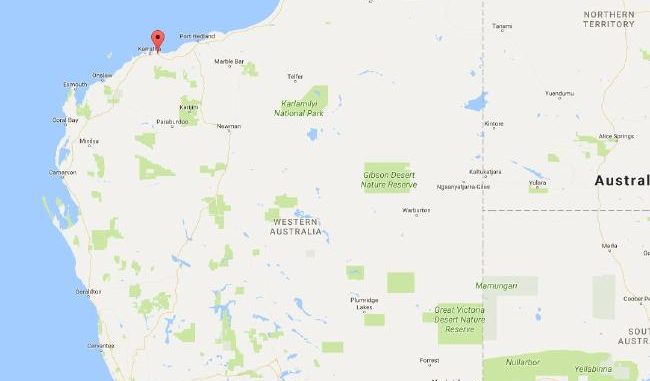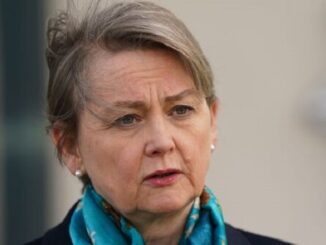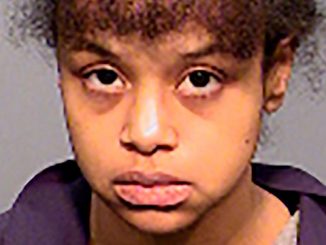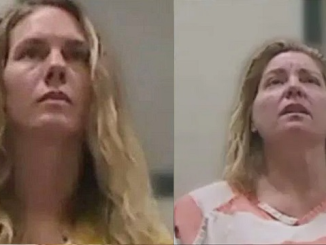
By Candace Sutton
WARNING: Confronting.
ROEBOURNE, Western Australia, is in the grip of a paedophile epidemic that has seen such a high incidence that child sex abuse is “normal”.
Police have charged 36 men with more than 300 offences against 184 children from Roeburne and surrounding communities.
West Australian Police Commissioner Karl O’Callaghan has described the rate of alleged child sex offending in Roebourne as “staggering” and the problem as “a cancer”.
The former gold rush town, which has a greater population of around 1400, lies in the Pilbara region 1500km north of Perth.
The Pilbara, with vast mining resources and sparsely populated Aboriginal towns, covers 500,000 square kilometres stretching from the Indian Ocean to Central Australia.
Roebourne, where the streets are lined with brick and stone colonial buildings, has dwindled since its 19th century boom as the largest settlement between Darwin and Perth.
It has now been singled out as a festering mess of intergenerational child sexual abuse where kids are more likely to be raped than almost anywhere else on earth.
“It’s a war zone out there and the victims are little kids,” Mr O’Callaghan told the ABC in a recent news report following the multiple arrests of local men under Operation Fledermaus.
In a nine-month operation across areas including Roebourne and the neighbouring city of Karratha, police identified almost three times as many suspects as the number arrested.
The scale of the abuse uncovered was the worst WA Police had ever seen and the communities were in an “almost unrecoverable crisis”, Mr O’Callaghan claimed.
Earlier this month, The Australian reported that child sex abuse in Roebourne was so “normal” that even jailing known paedophiles was not enough to end it.
That was the opinion of West Australian Child Protection Minister Simone McGurk who visited Roebourne following the Operation Fledermaus arrests.
“Yes, you would have to say that, through the sorts of numbers we are starting to see,” she told West Australian Bureau Chief, Paige Taylor.
“It’s intergenerational. Many of these perpetrators were victims themselves.”
Alcohol, drugs and violence afflict the Roebourne and surrounding communities whose population is more than half indigenous.
Several Aboriginal women, young people and children came forward and in the same month, police charged three Roebourne men with child sex offences against girls aged between 13 and 16.
A 45-year-old man was charged with indecent dealing with a child over 13 and under 16 years, offering a prohibited drug and possession of drug paraphernalia.
A 52-year-old man was charged with two counts of sexual penetration of a child over 13 and under 16 years and one count of indecent dealing with a child over 13 and under 16 years.
A 39-year-old man has been charged with indecent dealing with a child over 13 and under 16 years.
Minister McGurk said “child protection workers, specialist police officers and other dedicated resources [were] on the ground giving support to the families and the community”.
“I’d like to acknowledge the strength of the children, the families … who have the courage to come forward,” she said.
“Actually coming forward is a first step in systemic change.”

WA Police Commissioner Karl O’Callaghan describes the rate of child sex abuse offending in Roebourne as ‘staggering”. Picture: Colin Murty.Source:News Corp Australia
Commissioner O’Callaghan, however, identified another factor in the community, which is 80 per cent on welfare.
In an article he wrote for The West Australian, Mr O’Callaghan said child sex offenders were spending welfare money on drugs and alcohol to lure children.
“A further pattern emerging is that offending activity seems to increase when offenders receive substantial amounts of money and spend it on a combination of alcohol, drugs, gambling and sex.
“Knowing that welfare payments contribute to increases in many types of offending, particularly alcohol and drug-related offending, is hardly rocket science.
“Linking such payments to an increase in sexual abuse of children, however, is a much newer phenomenon.”
Communities in WA and South Australia were trialling a cashless debit card for welfare recipients, which cannot be used for alcohol, gambling or illicit substances.
Seven years ago, a WA government report painted a bleak picture of the life of Aboriginals in Roebourne.
The Roebourne Report said alcohol abuse, child neglect, violence and crime were occurring at an alarming rate.
Annual alcohol consumption in Roebourne Shire was 26.8 litres per person, three times the state average.

WA Child Protection minister Simone McGurk says child abuse in the Roebourne area has been ‘normalised’. Picture: Colin Murty.Source:News Corp Australia
Cannabis use was rife among young people.
On fortnightly welfare pay days, gambling soared and children were left to their own devices.
Unsupervised children roamed the streets at night and house break-ins were viewed “as the rite-of-passage for many Roebourne youth”.
A high proportion of Roebourne children considered vulnerable in terms of their physical, social and emotional development.
According to Roebourne local, Violet Sampson alcohol abuse has turned the town’s grandmothers into safe house operators.
Ms Sampson told news.com.au that she began looking after her grandchildren when their parents were out drinking.
“I have three kids here,” she said. “When their parents split up and went off drinking, the kids came to me.
“When they need a good sleep, without overcrowding and a feed, I take them.
“And they can go to school in the morning.
“It’s what grandmothers do here in Roebourne, Karratha. Aboriginal families we look after the kids.”
Source news.com.au





Be the first to comment